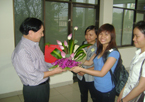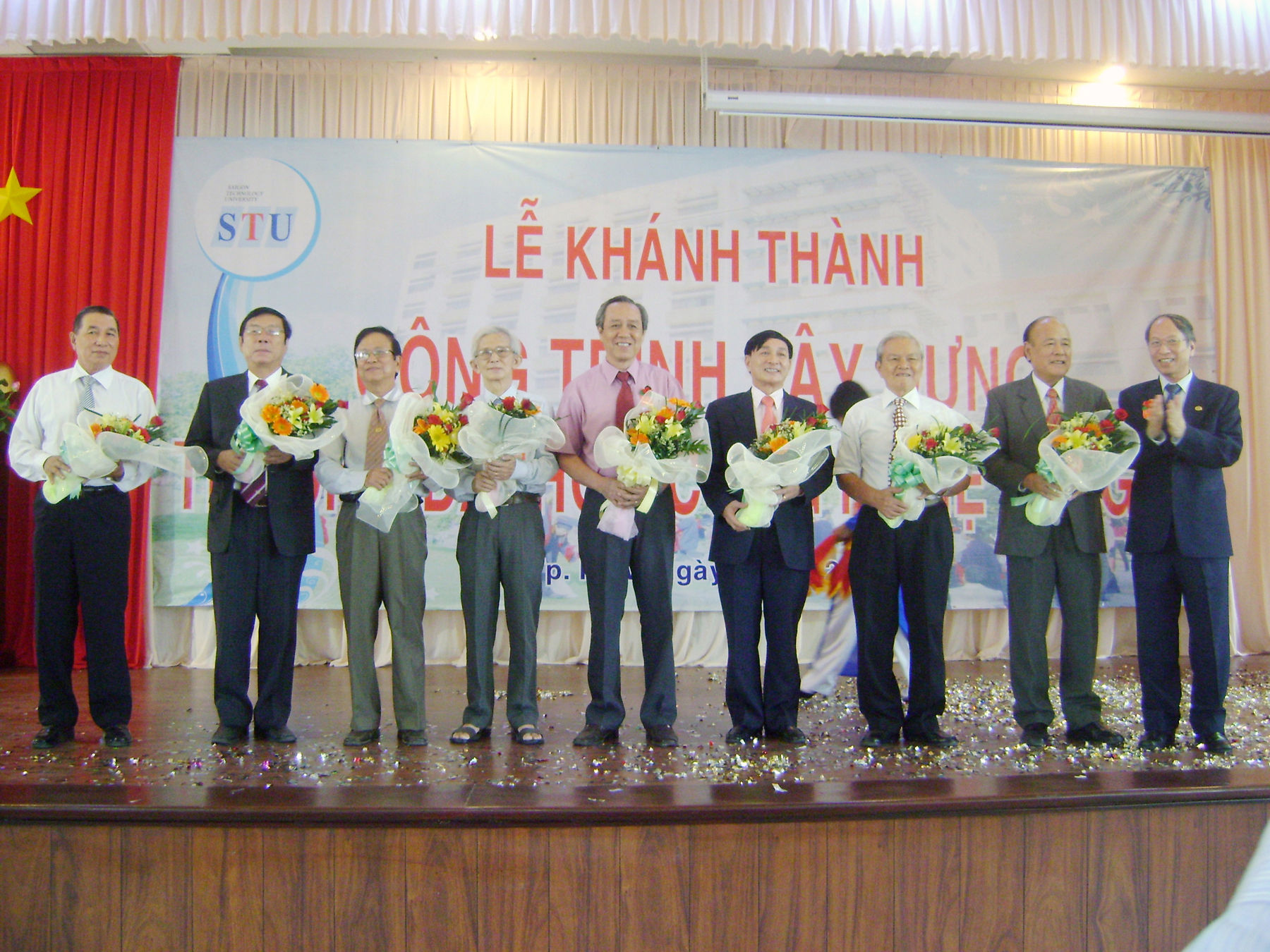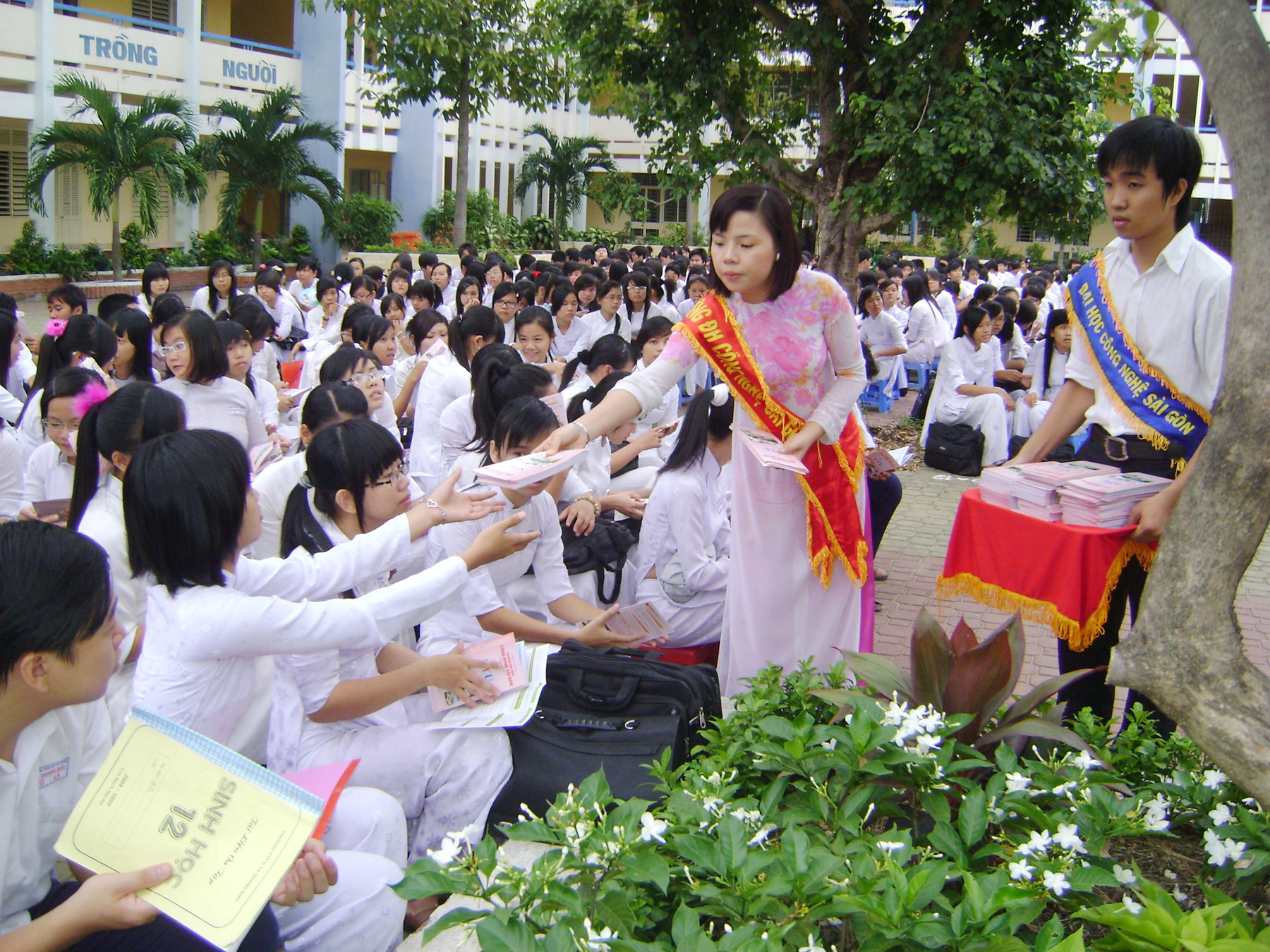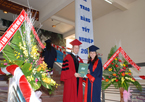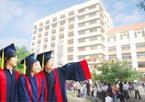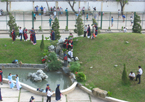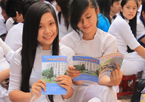News and Events
PrintUS helps Vietnam meet growing demand for talent
Update 08/09/2015 - 09:35:13 AM (GMT+7)As transnational companies discover and choose Vietnam as their choice to invest and conduct business operations, an educated workforce is even more essential to the nation’s economic viability.
Through educational programs and much appreciated support of the US, Vietnam’s colleges, universities and students are poised to meet the government’s goal – and then some.
A record number of 17,000 Vietnamese students are enrolled at American colleges and universities in 2015— making them the 8th largest foreign group of students and the leading group of ASEAN studying in the US.
In fact, ever since diplomatic relations were normalized two decades ago, US support for general education in Vietnam has been part of its effort to rebalance and strengthen bilateral ties.
 |
| Sand Dang and former US Ambassador to Vietnam David Shear |
The Fulbright Economic Training Program in Ho Chi Minh City created in 1995 between the Vietnam Ministry of Training and Education and the US State Department is the embodiment of the two nation’s effective cooperation.
Through a wide variety of specific training courses, it has provided in country training for thousands of the nation’s students and government officials, advancing people-to-people ties between the two nations.
In addition, Fulbright programs have helped more than 600 Vietnamese students and governmental officials pursue studies in the US and many of them have successfully gone on to hold high-level positions in the public and private sectors.
The Vietnam Education Foundation (VEF) created by the US Congress in 2000 is another shining example of the fine cooperation between the two countries. The VEF receives an annual budget of US$5 million from the US Congress until 2018.
 |
| Secretary of HCM City Party Committee Le Thanh Hai hands over an investment certificate of Fulbright Vietnam University |
VEF has so far assisted more than 500 Vietnamese students pursue studies in the US in the science, technology, engineering mathematics and medical fields and more than 30 American citizens to teach in these same fields of study in Vietnam.
There has been positive engagement of the private sector in Private Public Partnerships to promote education cooperation. The most notable example of this is the Higher Engineering Education Alliance Program (HEEAP).
The HEEAP, which began in 2010, has brought together the United States Agency for International Development (USAID), Intel Vietnam, Arizona State University (ASU) and eight top Vietnamese engineering and technical vocational universities to modernize Vietnam’s public higher education in engineering.
 |
| Party General Secretary Nguyen Phu Trong and former US Ambassador to Vietnam Michael Michalak |
Vietnam Prime Minister Nguyen Tan Dung’s visit to Washington DC in 2008 was a turning point and during the visit the Ministry of Education and Training of Vietnam and the US Department of State signed a memorandum of understanding (MoU) on higher education.
This MoU directly led to the setting up of joint working groups in such areas as Establishing an American University in Vietnam; Accreditation and Testing; English Language Acquisition; Post-Graduation Training and Fostering Stronger Linkage between Business and Academia.
Most recently a US non-profit organization launched Fulbright University Vietnam (FUV) on July 10, 2015 at a ceremony in New York City attended by Party General Secretary Nguyen Phu Trong during his historic trip to the US.
Plans are to raise US$50 million over the next three years and to mobilize US$100 million by 2020 to finance the university to be constructed in HCM City (at the Saigon High-Tech Park).
FUV is an ambitious extension of Harvard University’s decades-old Fulbright Economics Teaching Program in Vietnam and will offer western-style graduate and undergraduate degrees.
Initially FUV will offer a broad range of academic programs in public policy, business administration, finance, law and engineering and later expand to offer extensive liberal arts programs to its curriculum at the undergraduate level.
The university, expected to break ground later this year, will be the first private and nonprofit university in Vietnam and represents a key component of education cooperation between Vietnam and the US.
These are just a few examples of higher education cooperation among a host of others that could have been mentioned such as American students who come to study in Vietnam.
Investing in a trained workforce is vital to bringing more business and industry to Vietnam and – building the domestic economy – and thanks to help from the US, Vietnam is facing up to the challenge.
Related News
- Vietnamese student grabs bronze at Microsoft Office Specialist World Championship (05/08/2019)
- Vietnam wins big at WICO 2019 (30/07/2019)
- Vietnamese woman seeks second college degree at age 63 (26/07/2019)
- Vietnamese students win more golds at ASEAN Schools Games (23/07/2019)
- Vietnam acquires Australia’s experience in university governance (29/05/2019)
- High-school graduates turn away from higher education (28/05/2019)
- Vietnamese students win Asian Physics Olympiad medals (16/05/2019)
- PM approves project applying IT in law dissemination and education (06/05/2019)
- Universities, firms join hands in training high-quality agriculture workforce (23/04/2019)
- Vietnamese university named in top 101-200 of Impact Ranking (05/04/2019)



